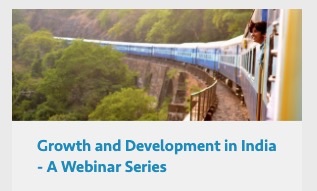Who Wants To Be A Politician? Running for Office in West Bengal Panchayats
SHARE THIS

| Ananish Chaudhuri (University of Auckland) | |
| Tuesday 2 June 2020 at 11:30 am - 12:30 pm (Hong Kong time, GMT +8) | |
|
Online |
Politicians in developing countries are typically considered to be rent-seeking, self-serving, and corrupt. The "negative selection hypothesis" suggests that it is the inherently dishonest that seek to enter office, in the expectation of earning political rent. Alternatively, the "positive selection hypothesis" posits that those who enter politics are more idealistic than ordinary citizens and wish to make a difference. But with greater exposure to politics, they become more cynical and self-serving. We use survey and experimental data from politicians and regular citizens from rural West Bengal to study the attributes, attitudes, and behaviors of both newly elected and more experienced local-level politicians and how they compare to the general population. We find that compared to regular citizens, neophyte politicians are more honest, trusting, fair-minded and express greater faith in political institutions and processes. Experienced politicians, on the other hand, are more cynical and less honest than incoming ones. This provides evidence in favor of the positive selection hypothesis, but also suggests that the political environment either makes politicians more cynical over time or makes the more idealistic ones select out of politics when they get the chance.
|
This webinar is part of a series of webinars that explore issues in growth and development in India. The series' academic committee consist of Takashi Kurosaki (Hitotsubashi Institute for Advanced Study), Pushkar Maitra (Monash University and Sujata Visaria (Hong Kong University of Science and Technology) . |
About the speaker
Ananish Chaudhuri is Professor of Experimental Economics at the University of Auckland and served as Department Chair from 2013 till 2019. He is also the Founder and Director of DECIDE – the University of Auckland Business Decision Making Lab. He is ranked among the top 10% of authors in Economics across the world according to the widely-known Research Papers in Economics (RePEc) and Social Science Research Network (SSRN) databases. He is working on a number of new projects including a new book “Behavioural Economics and Experiments” (Routledge), an edited volume “Research Agenda for Experimental Economics” (Edward Elgar) and a large project funded by a Marsden Grant, that uses economic decision-making games to study political ideology. One paper from this project “The dual evolutionary foundations of political ideology” is forthcoming in Nature Human Behaviour. Between January and June 2020, he is Visiting Professor of Public Policy at Harvard Kennedy School teaching MLD 302: Behavioural Decision making to MPA students. Visit his personal website.
To Attend the Event
The event will take place on 30 June 2020 Tuesday at 11:30 am HKT (GMT+8) == 1:30 pm AEST == 12:30 pm JST.
The event will be held online only via Zoom. Please register with us to obtain the meeting link as part of our security measures. Also see here for advice from the university's IT office on Zoom best practices for attendees.
House Rules
- We would like the webinar to be interactive. Please join with both audio and video whenever possible.
- It is advised to mute yourself when you are not speaking. This prevents any distractions due to background noise.
- The chat function will be on, but the speaker may not see your chat message. Please consider raising your hand (blue hand button) or unmuting yourself to ask a question.
- The talk will not be recorded.
Get updates from HKUST IEMS







